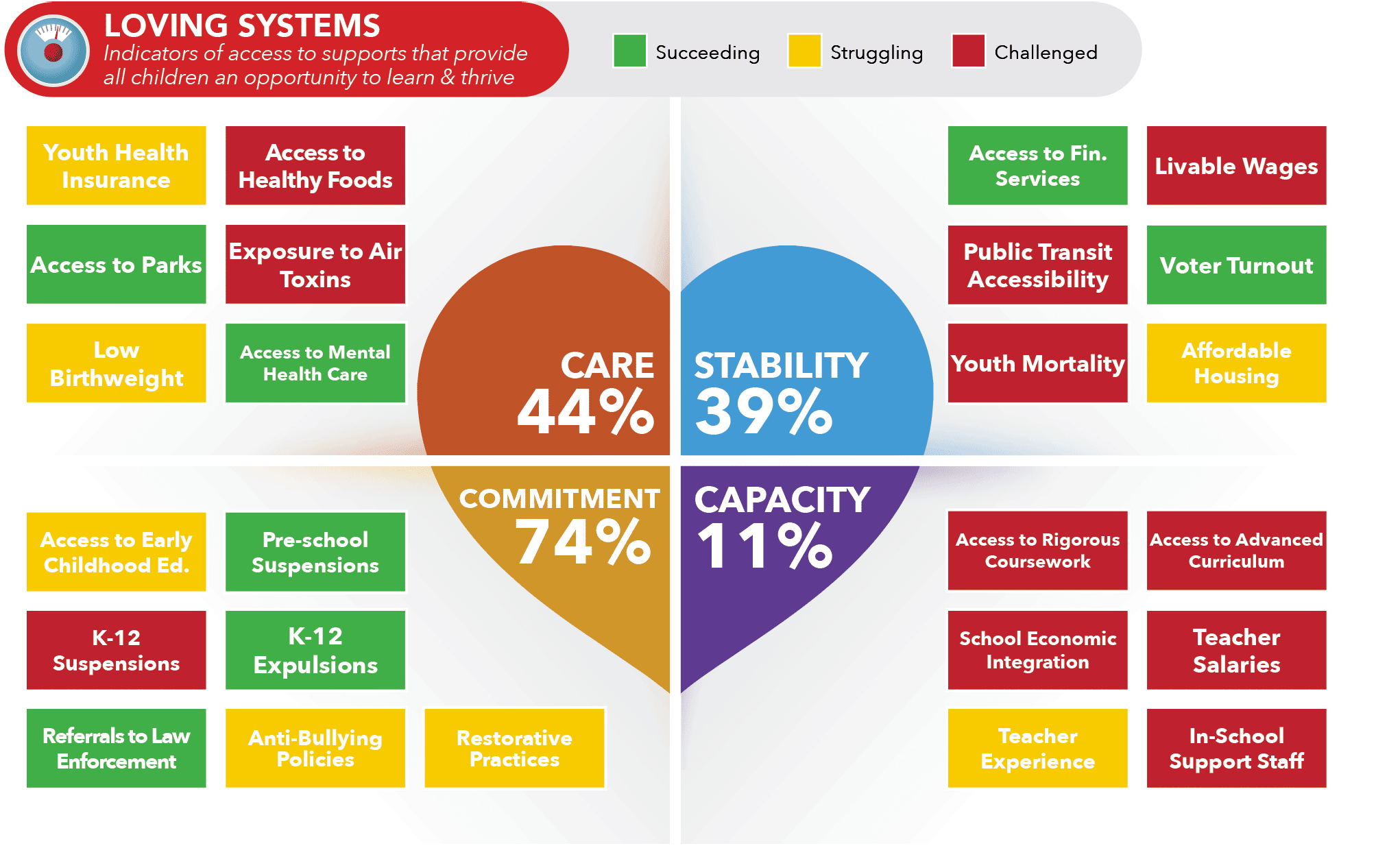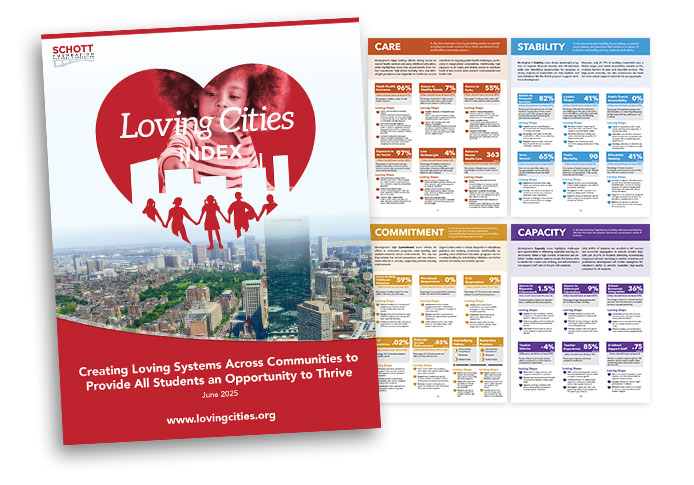Richmond, Virginia, a city with a rich historical legacy, is making strides toward becoming a more equitable and opportunity-filled community for all its residents. From its founding in 1737, Richmond has played a pivotal role in American history, serving as the capital of Virginia and later the Confederacy. The early 20th century saw Richmond emerge as a center for Black economic empowerment in Jackson Ward, but segregation, urban renewal projects, and highway expansion displaced Black communities and reinforced racial inequities through the 1970s.


of supports measured
In recent years, Richmond has focused on addressing historical injustices and fostering inclusive growth, including the removal of Confederate statues in 2020 and efforts to preserve Shockoe Bottom’s history as a major slave trade hub. Economic revitalization has transformed neighborhoods like Scott’s Addition and expanded access to workforce training and affordable housing initiatives.
Richmond has a diverse population of approximately 226,000 residents who are primarily Black (45%) or White (42%). With a strong network of educational institutions, economic development initiatives, and community-focused policies, Richmond is working to ensure that every child and family has the support they need to thrive. While challenges remain in areas such as stability and capacity, ongoing efforts in education reform, economic opportunity expansion, and community health improvements show the city’s dedication to progress.
Expand to read more
Richmond has made significant investments in initiatives that enhance the well-being of its residents, particularly in education, public health, and economic mobility. Programs such as the Richmond Resilience Initiative, a guaranteed income pilot program, and the expansion of affordable housing efforts through the Affordable Housing Trust Fund, reflect a commitment to stability. The city has also increased investments in early childhood education through initiatives like Richmond Public Schools’ Pre-K Expansion, which aims to provide greater access to high-quality early learning programs.
While Richmond’s high school graduation rate (67%) is below the national average, 52.61% of its adults hold an associate degree or higher, surpassing the national average. The Office of Community Wealth Building and Richmond Technical Center provide pathways to post-secondary education and career readiness. Expanding workforce training opportunities can further improve economic mobility and educational outcomes.
Richmond’s commitment to health equity is evident in its high youth health insurance coverage rate, ensuring access to medical care for children. However, air quality remains a concern, highlighting the need for environmental health improvements. Initiatives such as the Health Equity Fund are helping address health disparities, particularly in underserved communities.
Housing affordability remains a challenge in Richmond. The GRTC Transit System expansion aims to improve transit accessibility by increasing high-frequency public transportation routes, improving economic mobility and job access.
By advancing initiatives in education, economic empowerment, healthcare, and housing, Richmond is well-positioned to foster a more resilient and thriving community.
Richmond Indicators

The Community Climate comprises indicators of a city’s current conditions in important areas such as education, economic stability, and public health. While these indicators do not uncover underlying supports or influences in a city, the outcomes provide a picture of a community’s well-being, economic mobility, and equitable opportunities.



